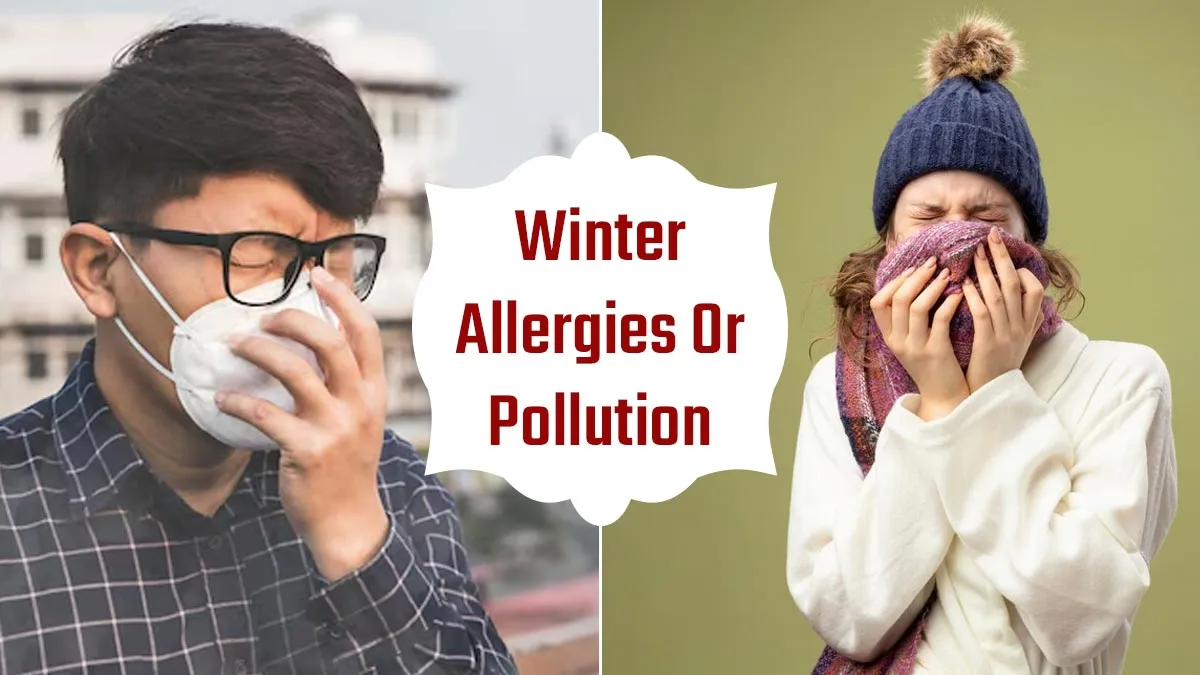
As winter settles in, many people experience symptoms like sneezing, itchy eyes, or a cough. But how can you find out if it’s due to winter allergies or pollution? While both can cause similar issues, knowing the difference is key to finding the right treatment. We spoke to Dr Samir Garde, Director of Dept of Pulmonology and Lung Transplant, Gleneagles Hospital, Parel, who explained how to differentiate between winter allergies and pollution-related symptoms, common triggers, and practical solutions to alleviate their effects.
Table of Content:-
How to Differentiate Between Winter Allergies and Pollution-Related Symptoms
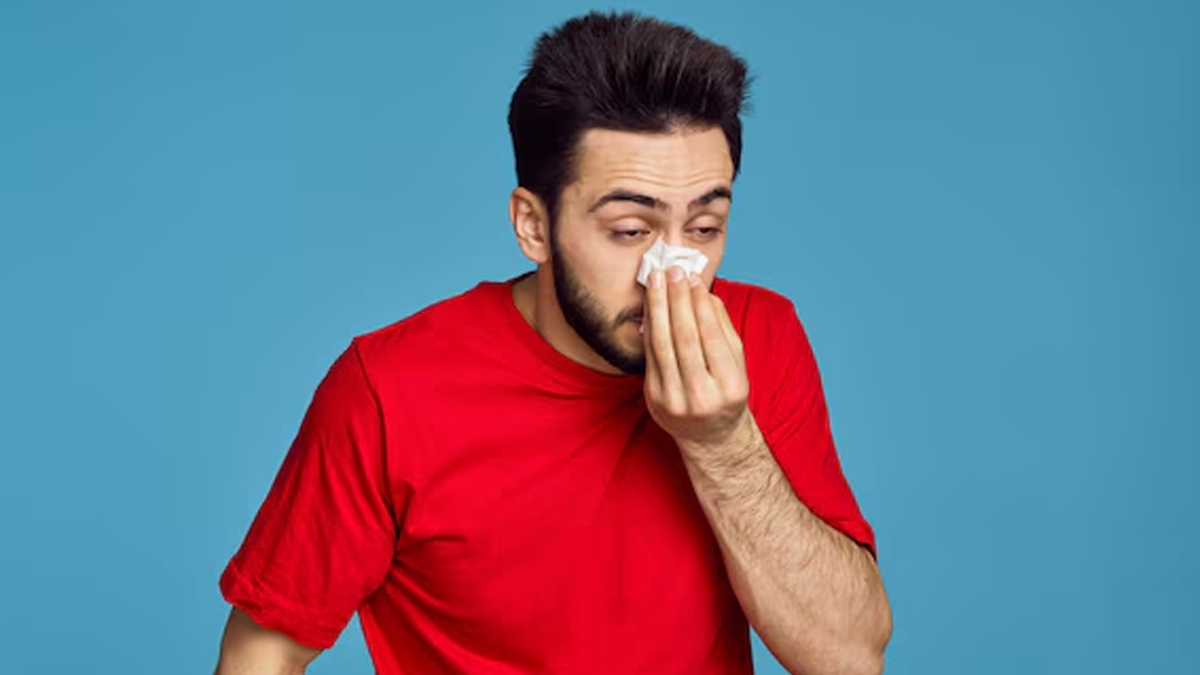
Winter allergies are primarily triggered by indoor allergens like dust mites, mould, and pet dander. These allergens cause symptoms, such as sneezing, nasal congestion, watery eyes, and itching.
“On the other hand, pollution-related symptoms stem from poor air quality, often exacerbated by smog, vehicle emissions, and particulate matter (PM2.5). These symptoms include throat irritation, coughing, and breathing difficulties,” explained Dr Garde.
According to a 2019 study, pollution can contribute to oxidative stress, which is linked to the increased prevalence of seasonal allergic rhinitis. This condition often intensifies as a defensive response to environmental pollution, heightening allergenicity. Pollutants like sulphur dioxide (SO₂), nitrogen dioxide (NO₂), and ozone can modify the allergenic proteins in pollen.
Also Read: Are Allergies Permanent? We Asked A Doctor
Common Symptoms of Winter Allergies Vs Pollution
Winter Allergies
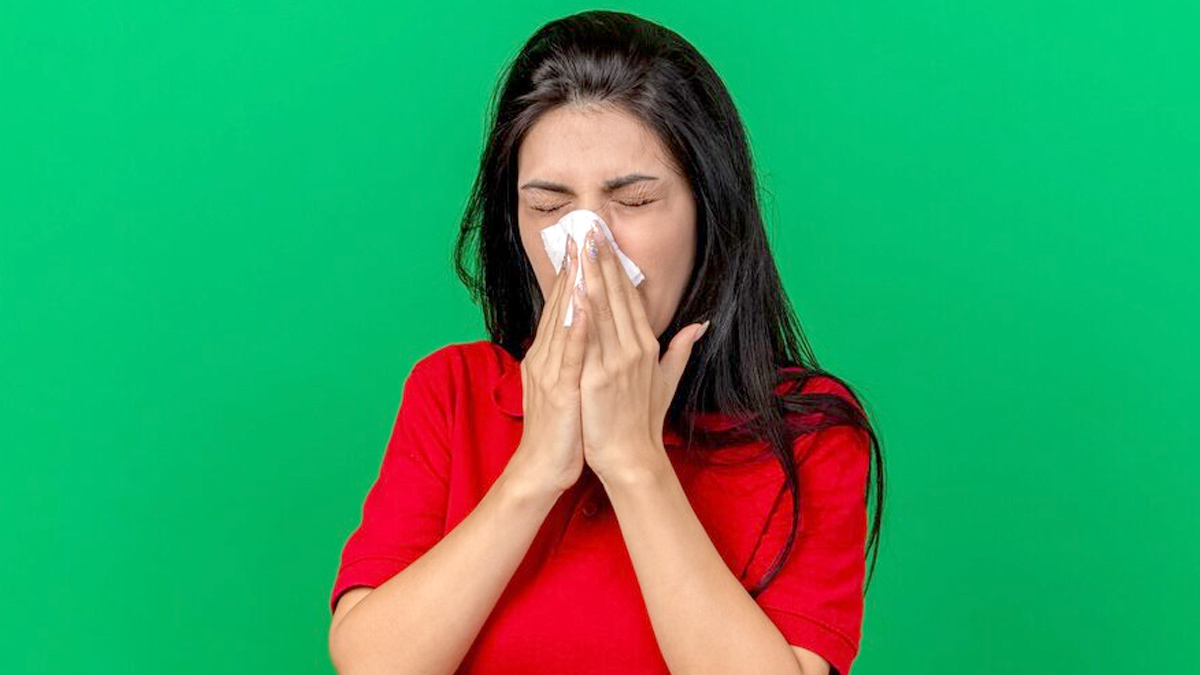
- Sneezing
- Nasal congestion
- Watery eyes
- Runny nose
- Itching
These symptoms are usually triggered by prolonged exposure to indoor allergens and are more prevalent in closed environments like homes and offices.
Pollution-Related Symptoms
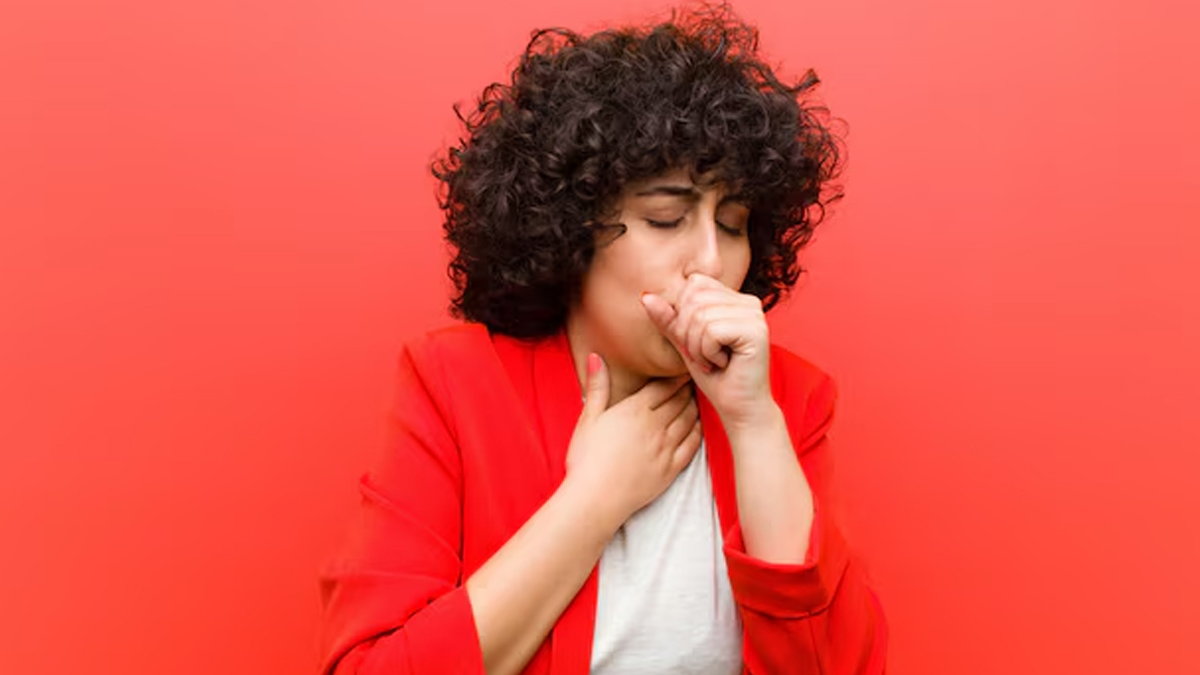
- Throat irritation
- Coughing
- Difficulty breathing
- Wheezing
Pollution-related symptoms often occur outdoors, particularly in areas with poor air quality, and can escalate quickly in high-smog conditions. Immediate medical attention is advisable if symptoms worsen.
Key Pollutants Responsible for Winter Respiratory Symptoms
During winter, air quality deteriorates significantly due to increased particulate matter (PM2.5), carbon monoxide, and nitrogen oxides from vehicle emissions and industrial activities. These pollutants irritate the respiratory system, leading to coughing, sneezing, throat discomfort, and watery eyes, symptoms that closely mimic those caused by allergies.
How Air Quality in Winter Contributes to Respiratory Issues
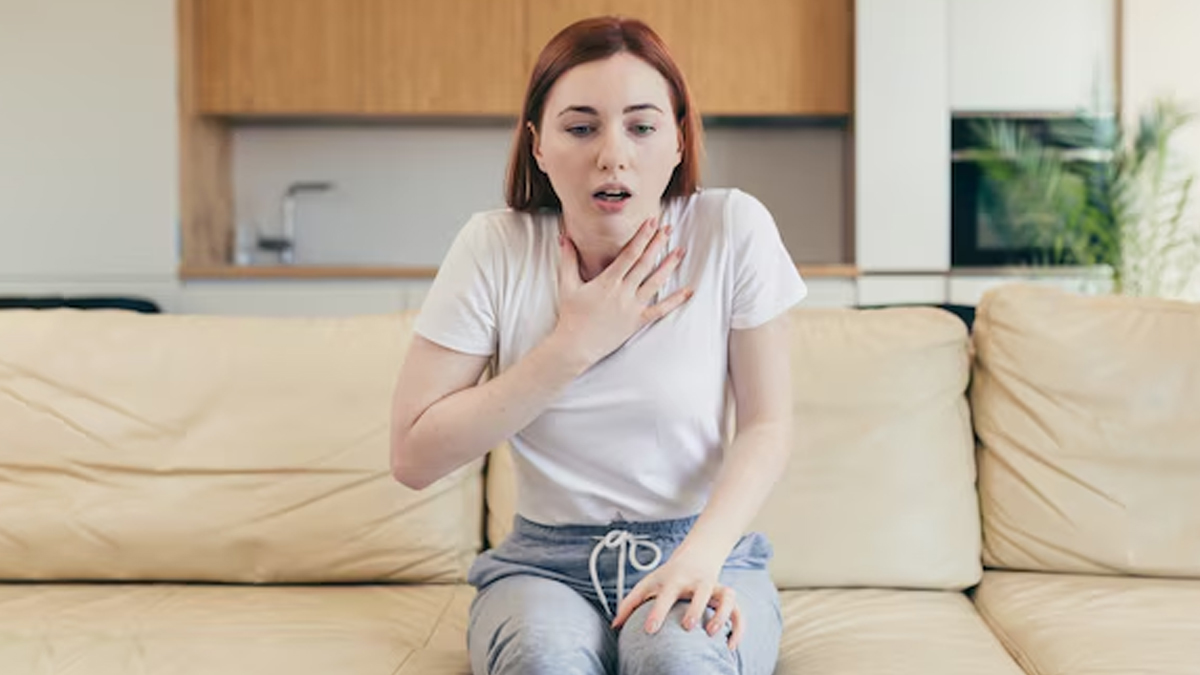
“The combination of cold weather and reduced ventilation traps pollutants closer to the ground, creating smog. Prolonged exposure to this polluted air causes respiratory distress, including coughing, wheezing, and shortness of breath,” added Dr Garde. This differs from seasonal allergies, where the primary culprits are indoor allergens like mould and dust mites. Allergies manifest as sneezing, nasal congestion, and itchy eyes without directly affecting lung function.
Also Read: How Allergies Impact Your ENT Health: Expert Tips On Prevention And Care
Identifying Specific Triggers
“Allergy symptoms are often caused by exposure to indoor allergens like dust mites, mould, and pet dander. The warning signs are sneezing, itchy or watery eyes, and nasal congestion. On the other hand, pollution-linked symptoms are triggered by poor outdoor air quality and one can suffer from throat irritation, coughing, and shortness of breath,” explained Dr Garde.
If symptoms worsen in areas with high pollution levels and smog, it may be due to the pollution. Moreover, allergy symptoms often aggravate in homes with pets or when there is too much dust.
Lifestyle Changes to Manage Symptoms
Adopting simple lifestyle adjustments can help mitigate the effects of both winter allergies and pollution:
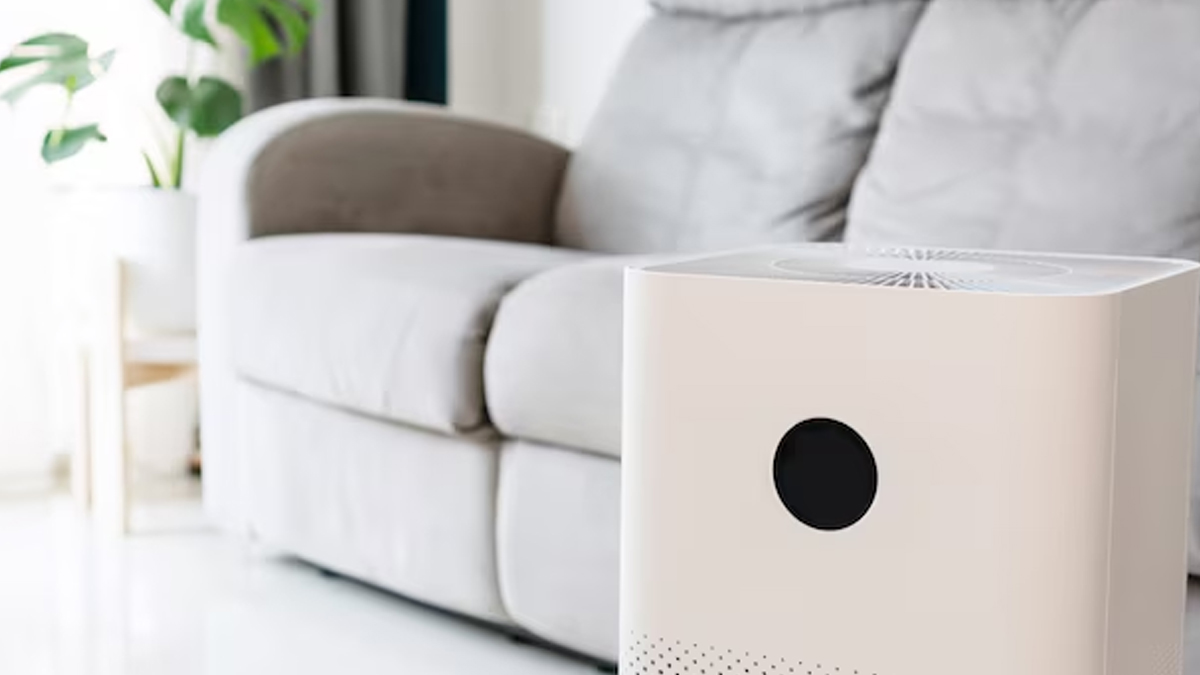
For Allergies
- Keep your home clean and free of dust.
- Use air purifiers to reduce indoor allergens.
- Address mould issues promptly.
- Minimise contact with pet dander by grooming pets regularly and maintaining hygiene.
For Pollution
- Avoid outdoor activities when air quality is poor.
- Wear a high-quality mask to filter out pollutants.
- Keep your nose and mouth covered when outdoors by wearing a scarf.
- Investing in indoor air purifiers will improve indoor air quality.
Treatments for Managing Symptoms of Winter Allergies Vs Pollution
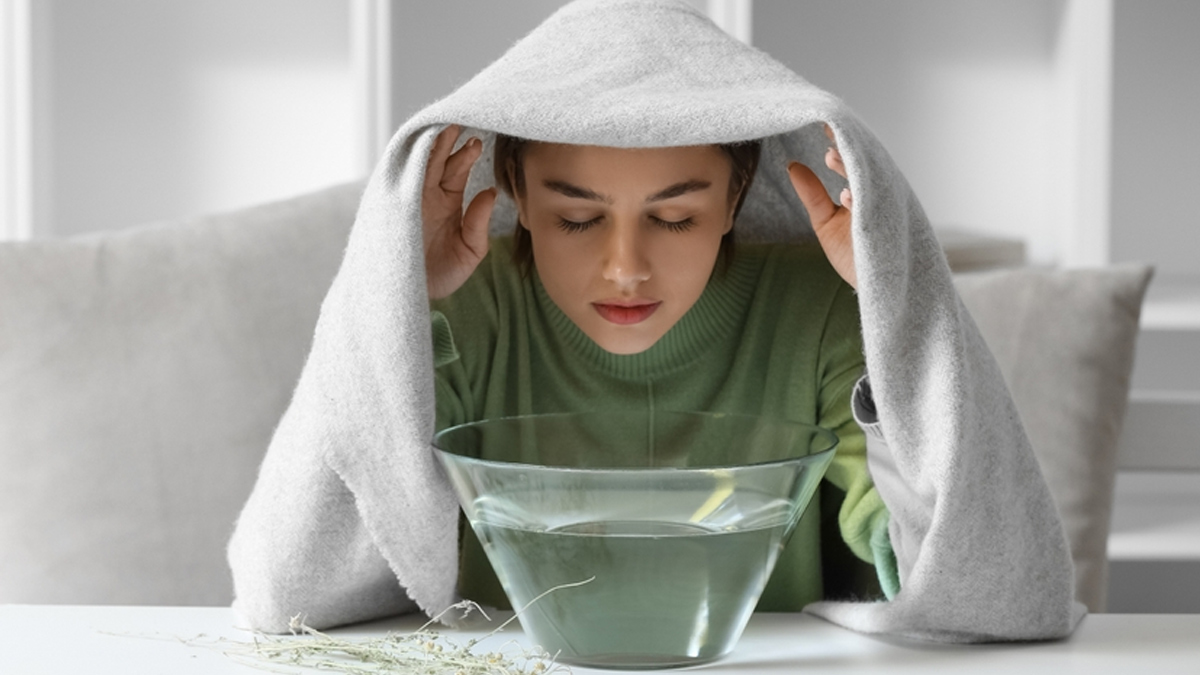
Winter Allergies
- Over-the-counter antihistamines and nasal decongestants can alleviate symptoms.
- In severe cases, allergists may recommend immunotherapy or prescription medications.
Pollution-Related Symptoms
- Bronchodilators and inhalers can help ease breathing difficulties.
- Steam inhalation or saline nasal sprays may provide temporary relief.
Consulting a healthcare professional is crucial for tailored treatments based on specific symptoms and triggers.
Long-Term Effects of Exposure
Prolonged exposure to allergens or pollution can have severe consequences for respiratory health:
Allergy Exposure
- Chronic inflammation in the airways can lead to asthma, allergic rhinitis, or sinusitis.
- Persistent exposure may weaken the immune system’s ability to combat allergens effectively.
Pollution Exposure
- Damage to lung tissue and reduced lung function.
- Increased likelihood of developing Chronic Obstructive Pulmonary Disease (COPD) and lung cancer.
- Higher susceptibility to respiratory infections and cardiovascular diseases.
[Disclaimer: This article contains information provided by an expert and is for informational purposes only. Hence, we advise you to consult your professional if you are dealing with any health issues to avoid complications.]
Also watch this video
How we keep this article up to date:
We work with experts and keep a close eye on the latest in health and wellness. Whenever there is a new research or helpful information, we update our articles with accurate and useful advice.
Current Version
